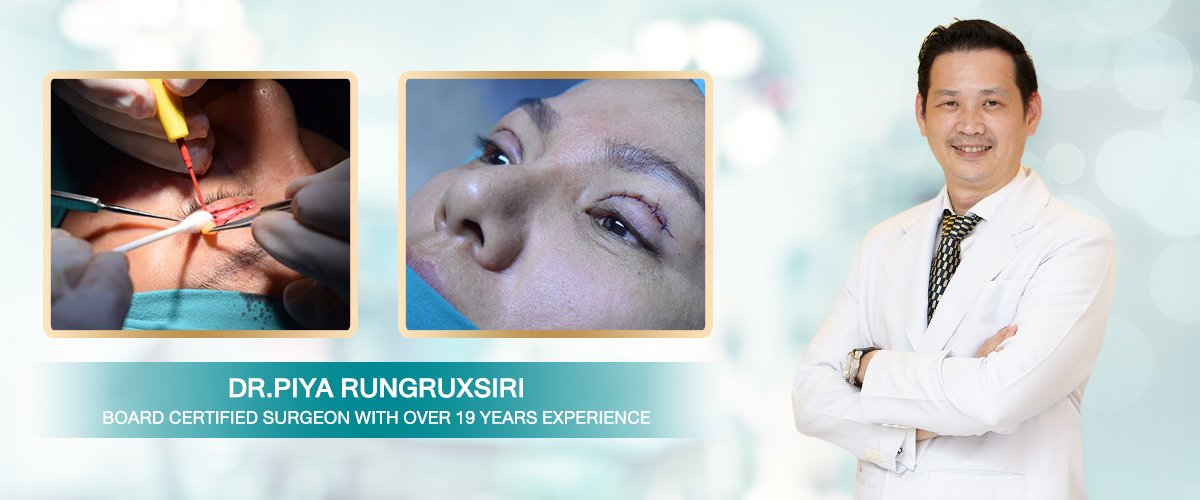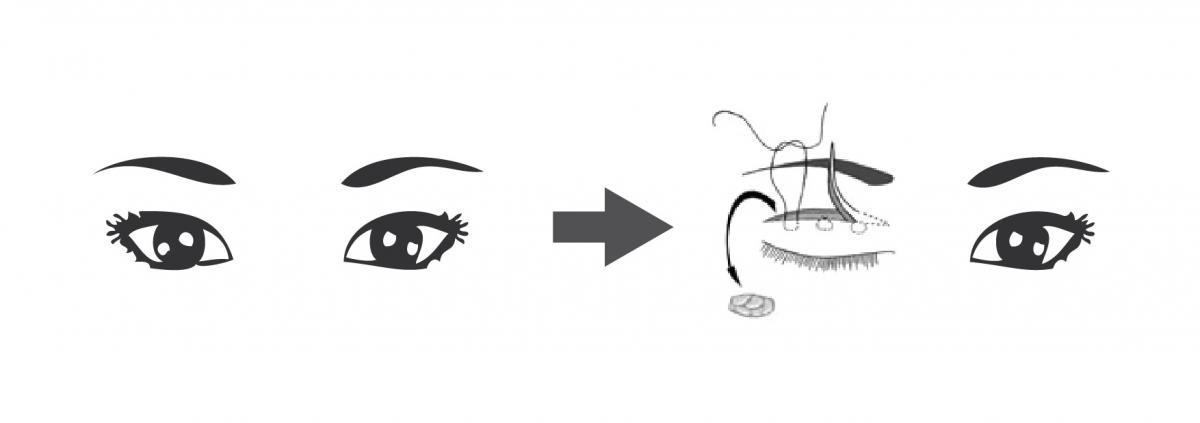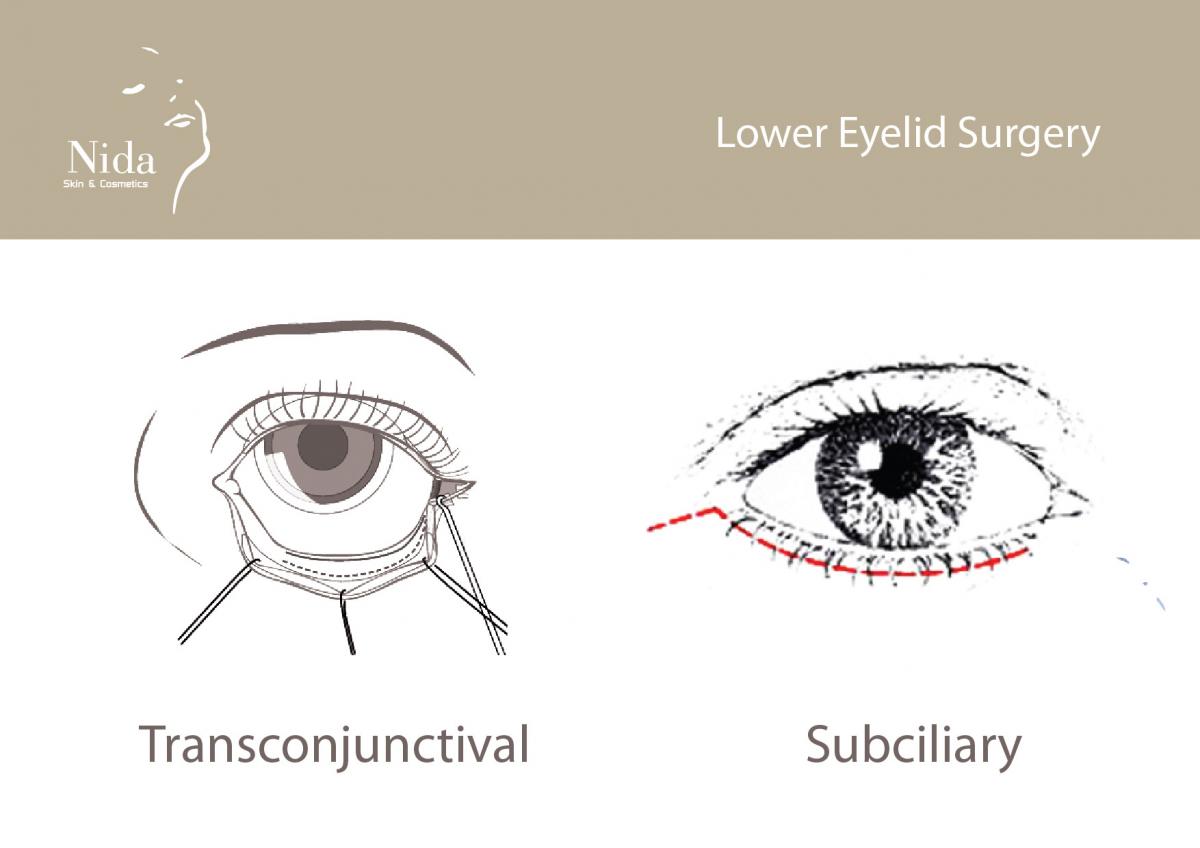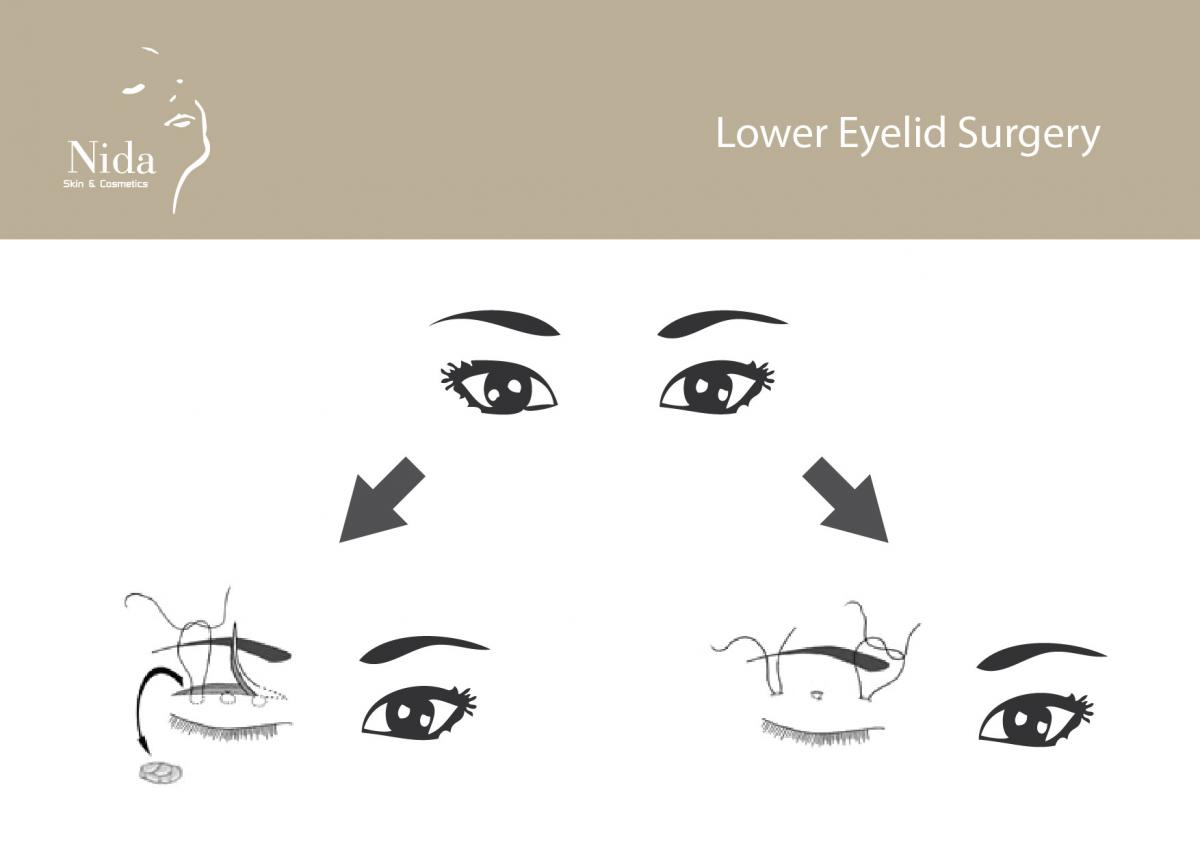Eyelid Surgery


What is eyelid surgery?
Eyelid surgery or Blepharoplasty is to correct problems of upper and lower eyelids. As well as other surgical procedures, eyelid surgery is an individual correction. A surgeon will evaluate a physical body of a patient, problems, factors of problems and expectations. Eyelid surgery corrects structures of upper and lower eyelids and nearby areas such as ptosis and eye bags that can be fixed with eyelid surgery including Levator Palpebre Superioris Muscle or excess skin removal.

Why Eyelid Surgery at Nida Esth’
- The expertise of a surgeon – Dr. Piya Rungruxsiri – who has a special technique of eyelid surgery and more-than-19-year experience in surgical field.
- Anesthesiologists and nurse teams who have experiences in taking care patients and hospitalization both local and international
- Your problems will be corrected with right solutions with no selling because we only have professional surgeons and nurse teams who perform professionally
- Small wounds, less swollen and less recovery process after eyelid surgery
When to do Eyelid Surgery
- Ptosis, sad eyes, drowsy eyes, single eyelids, causing less clear visions and aging looks
- Accumulated fat under upper eyelids, resulting in dissatisfying appearance of upper eyelids
- Eye bags, causing a sign of age
- Saggy lower eyelids, resulting in too much of white of the eyes
- Too much skin tissues and saggy lower eyelids
Who should double eyelid surgery?
The one who can undergo eyelid surgery both males and females what have tissues and healthy facial muscles. Also, patients would like to have younger eyes so patients who are competitors for eyelid surgery are as follows
- Healthy patients with no severe health issues that could affect recovery process
- No smoking
- Patients who’d like to correct lower and upper eyelids
Pre-operation Preparation before Eyelid Surgery
A consultation with a surgeon about techniques is the first step. Patients will be acknowledged and not pressured during a consultation which includes…
- A question of patients’ expectation and an assessment
- Options for eyelid surgery
- Result that patients would receive from eyelid surgery and risks of complications after surgery
- Treatment courses provided by a surgeon
- Patients should fully indicate their expectations
- Reveal all medical history, recent treatments, vitamin and herbal supplement consumption. No alcoholic drinks and smoking.
- Follow instructions of a surgeon strictly
Moreover, patients will be asked to sign a consent form for surgery to guarantee that they have acknowledged all the process of eyelid surgery, possibilities and risks of complications. From a surgeon’s explanation, the risks can involve infections, bad recovery process, poor visions, dry eyes syndrome, temporary ectropion, etc. Furthermore, there could be risks from anesthesia as well. All of these risks should be clearly explained before signing a consent form.
Eyelid Surgery
Eyelid surgery should be done in a place where provides sterile tools certified by a plastic surgeon such as in hospital. Anesthesia is a process that should be considered by both anesthesiologists and a surgeon who will provide safety and comfort to patients.
A problem of saggy upper eyelid can be corrected by eyelid surgery. The surgery is performed to move accumulated fat, tighten muscles and tissues or get rid of excess skin to have more pleasant upper eyelids.

Lower eyelids can be corrected by Transconjunctiva which accumulated fat will be spread or removed. Flaccid muscles will be tightened and incision site on lower eyelids’ rims can be corrected by excess skin removal of lower eyelids.

The incision sites can be covered by eyelash structures. A wound will get better and better and the swollen and bruises will be gone. Eyelid skin will be smooth again with a youthful appearance.

Follow ups after eyelid surgery
After eyelid surgery, the use of lubricant beeswax and cold pack can be involved. In some cases, patients may have to use bandages to cover eyes. Patients, family members and friends should know as follows
- Wound care and blood drainage
- Medication for faster recovery process and less chance of infection
- Post-operation care and health issues
- Follow ups with a surgeon
Wounds after eyelid surgery
At first, it is normal to have swollen, bruises, irritations or dry eyes which prescribed medications, cold pack and beeswax can be used to relieve such conditions.
A head should be straight up all the time until the bruise is gone and sunglasses should be worn to protect eyes from sunlight and wind. For a better result, it is important to follow surgeon’s instructions strictly and patients can do daily shores after 2-3 days of eyelid surgery.
Affiliated Hospitals


